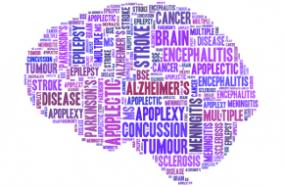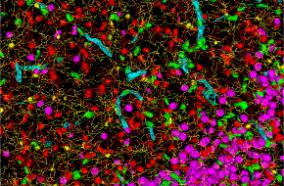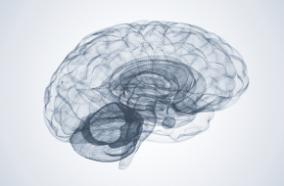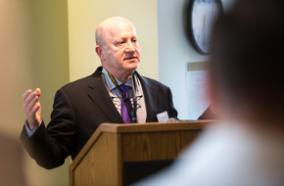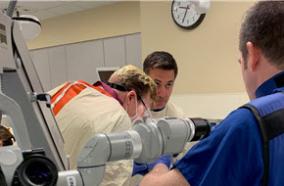4 years 7 months ago
N-Acetylgalactosamine (GalNAc) conjugated small interfering RNA (siRNA) are a leading RNA interference (RNAi) platform allowing targeted inhibition of disease-causing genes in hepatocytes. More than a decade of development has recently resulted in the first approvals for this class of drugs. While substantial effort has been made to improve nucleic acid modification patterns for better payload stability and efficacy, relatively little attention has been given to the GalNAc targeting ligand. In...
Richard James Holland
4 years 7 months ago
People are constantly exposed to phthalates, due to their common use in the production of plastics, pharmaceuticals, cosmetics and skin care products. The ability of phthalates to disrupt endocrine signaling, leading to developmental, reproductive and metabolic defects, has been studied, yet how phthalates interfere with these biological functions is still unclear. To uncover DBP interacting molecular pathways, we raised Drosophila melanogaster on food containing dibutyl phthalate (DBP) at...
Wen Liu
4 years 7 months ago
CONCLUSIONS: Moderate and severe obesity is associated with worse survival post ACS influenced by higher non-CVD mortality in moderate/severe obesity and higher CVD mortality in severe obesity.
Michael J A Williams
4 years 7 months ago
Long-chain acylcarnitines (LCACs) are known to directly alter cardiac contractility and electrophysiology. However, the acute effect of LCACs on human cardiac function is unknown. We aimed to determine the effect of LCAC 18:1, which has been associated with cardiovascular disease, on the contractility and arrhythmia susceptibility of human atrial myocardium. Additionally, we aimed to assess how LCAC 18:1 alters Ca^(2+) influx and spontaneous Ca^(2+) release in vitro. Human right atrial...
Hamish M Aitken-Buck
4 years 7 months ago
More than 320 million people live with depression in the world, a disorder that severely limits psychosocial functioning and diminishes quality of life. The prevalence of major depression is almost two times higher in women than in men. However, the molecular mechanisms of its sex-specific pathophysiology are still poorly understood. Drosophila melanogaster is an established model for neurobiological research of depression-like states, as well as for the study of molecular and genetic sex...
Thiago C Moulin
4 years 7 months ago
The high-fat, low-carbohydrate (ketogenic) diet has grown in popularity in the last decade as a weight loss tool. Research into the diet's effects on the body have revealed a variety of other health benefits. The use of exogenous ketone supplements to confer the benefits of the diet without strict adherence to it represents an exciting new area of focus. Synthetic ketogenic compounds are of particular interest that has received very little emphasis and is an untapped area of focus for chemical...
Michael Scott Williams
4 years 7 months ago
We evaluated the incidence of pseudoprogression and indeterminate response (IR) in patients with lymphoma treated with immune checkpoint inhibitors (ICIs). A systematic search of PubMed and EMBASE was performed up to 6 February 2021, using the keywords "lymphoma," "immunotherapy," and "pseudoprogression." Random-effects models were used to calculate both pooled incidence of pseudoprogression patients with lymphoma and an IR according to LYRIC criteria, while the Higgins inconsistency index (I2)...
Amy Junghyun Lee
4 years 7 months ago
The purpose of this randomized controlled trial (n = 268) at a Federally Qualified Health Center was to evaluate the outcomes of a care management intervention versus an attention control telephone intervention on changes in patient activation, depressive symptoms and self-rated health among a population of high-need, medically complex adults. Both groups had similar, statistically significant improvements in patient activation and self-rated health. Both groups had significant reductions in...
Cynthia F Corbett
4 years 7 months ago
CONCLUSIONS: Surgeon awareness of rhBMP-2 cost resulted in use of smaller rhBMP-2 doses, decreased rhBMP-2 cost per surgery, and decreased overall hospital admission charges, without a detectable increase in surgical complications.
Margaret McGrath
4 years 7 months ago
CONCLUSIONS: Cellular allograft is a low-morbidity bone allograft option for ACDF. In this study, the authors determined favorable arthrodesis rates and functional outcomes in a complex patient cohort following multilevel stand-alone ACDF supplemented with cellular allograft.
Alec W Gibson
4 years 7 months ago
CONCLUSIONS: Across all treatment groups, medication discontinuation was high, and in this sample of early adopters with limited follow-up time, we found no evidence that extended-release buprenorphine offered a retention advantage compared to other MOUD in real-world settings. Retention continues to represent a major obstacle to treatment effectiveness, and interventions are needed to address this challenge even as new MOUD formulations become available.
Jake R Morgan
4 years 7 months ago
CONCLUSIONS: There has been a significant rise in allegations of failure to biopsy and failure to refer (p < 0.05). In addition, while award amounts appear different between decades, the difference is not statistically significant (p = 0.248). Education should focus on early diagnosis, biopsy, and referral to physicians who routinely care for this patient population.
Amanda Wong
4 years 7 months ago
No abstract
Tatsuya Ozawa
4 years 7 months ago
PfSPZ-CVac combines 'PfSPZ Challenge', which consists of infectious Plasmodium falciparum sporozoites (PfSPZ), with concurrent antimalarial chemoprophylaxis. In a previously-published PfSPZ-CVac study, three doses of 5.12x104 PfSPZ-CVac given 28 days apart had 100% vaccine efficacy (VE) against controlled human malaria infection (CHMI) 10 weeks after the last immunization, while the same dose given as three injections five days apart had 63% VE. Here, we conducted a dose escalation trial of...
Sean C Murphy
4 years 7 months ago
Several phosphonium derivatives have been synthesized from Baylis-Hillman (BH) reaction derived allyl bromides and aryl phosphines as mitochondria targeting anticancer agents. In vitro cell proliferation inhibition studies on various solid tumor cell lines indicate that most of the compounds exhibit IC(50) values in µM concentrations. Further studies reveal that β-substituted BH bromide derived phosphonium derivatives enhance the biological activity to low µM IC(50) values. In vitrometabolic...
Zachary S Gardner
4 years 7 months ago
Cerebral vasospasm is a significant cause of morbidity and mortality associated with aneurysmal subarachnoid hemorrhage (aSAH). Intra-arterial chemical and mechanical angioplasty, performed alone or in combination, have been shown to ameliorate cerebral vasospasm and improve patient outcomes. Few options exist for patients who fail these traditional endovascular tactics. We propose a hybrid microcatheter technique that combines the mechanical benefit of transient high pressure induced by...
Melanie Walker
4 years 7 months ago
Epilepsy is one of the most common chronic brain diseases and is often associated with cognitive, behavioral, or other medical conditions. The need for therapies that would prevent, ameliorate, or cure epilepsy and the attendant comorbidities is a priority for both epilepsy research and public health. In 2018, the National Institute of Neurological Disease and Stroke (NINDS) convened a workshop titled "Accelerating the Development of Therapies for Antiepileptogenesis and Disease Modification"...
Aristea S Galanopoulou
4 years 7 months ago
CONCLUSIONS: This study has identified additional risk loci for PBC, provided a hierarchy of agents that could be trialled in this condition, and emphasised the value of genetic and genomic approaches to drug discovery in complex disorders.
Heather J Cordell
4 years 7 months ago
Flow in side-wall cerebral aneurysms can be ideally modelled as the combination of flow over a spherical cavity and flow in a curved circular pipe, two canonical flows. Flow in a curved pipe is known to depend on the Dean number De, combining the effects of Reynolds number, Re, and of the curvature along the pipe centreline, κ. Pulsatility in the flow introduces a dependency on the Womersley number Wo. Using stereo PIV measurements, this study investigated the effect of these three key...
Fanette Chassagne
4 years 7 months ago
Latrophilin-3 (LPHN3), a G-protein-coupled receptor belonging to the adhesion subfamily, is a regulator of synaptic function and maintenance in brain regions that mediate locomotor activity, attention, and memory for location and path. Variants of LPHN3 are associated with increased risk for attention deficit hyperactivity disorder (ADHD) in some patients. Here we review the role of LPHN3 in the central nervous system (CNS). We describe synaptic localization of LPHN3, its trans-synaptic binding...
Samantha L Regan
"university of washington"[affiliation] and neurological surge...: Latest results from PubMed
More posts about UW Neurological Surgery Recent PubMed Publications



